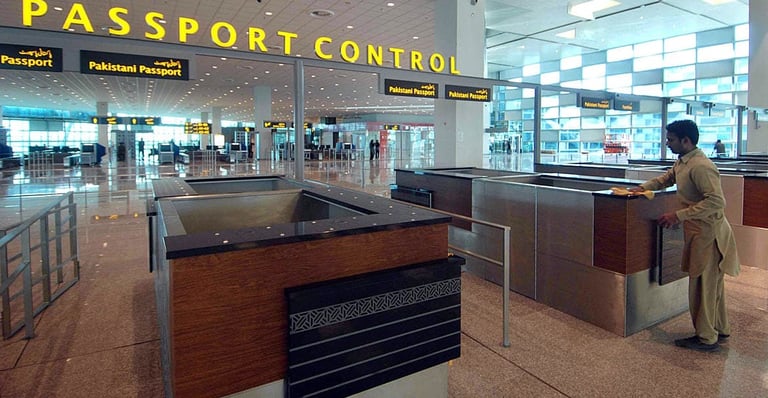Pakistan Sets Up Exclusive Immigration Counters for Foreign Passport Holders at Airports
Pakistan to launch separate immigration counters for foreigners at airports to boost tourism, simplify travel, and encourage global investment.
Raja Hassan Ali
8/2/20252 min read


Pakistan Establishes Separate Immigration Counters for Foreign Nationals at Major Airports
In a major development aimed at enhancing the experience of foreign travelers, Prime Minister Shehbaz Sharif announced on August 2, 2025, that Pakistan will establish separate immigration counters for foreign passport holders at all major international airports across the country. This move, part of a broader initiative to improve Pakistan’s global image and attract more tourism and investment, has been widely welcomed by business leaders, travel industry experts, and overseas Pakistanis.
Previously, foreign visitors arriving in Pakistan were required to wait in long queues alongside local passengers during the immigration process. These delays often created a negative impression and discouraged potential tourists and business travelers. Acknowledging this issue, the government has decided to implement exclusive, clearly marked immigration counters to streamline the entry process for foreign nationals.
According to official sources, the Federal Investigation Agency (FIA) has been directed to begin immediate implementation of this policy. Specialized immigration staff will be deployed at these counters, trained to assist foreigners with professionalism and courtesy. The initiative is part of Pakistan’s broader strategy to modernize its travel infrastructure and improve accessibility for international visitors.
In addition to the immigration announcement, Prime Minister Shehbaz Sharif also provided updates on key airport development projects. Airports in Sukkur and Dera Ismail Khan are being upgraded to handle international flights, while Rahim Yar Khan Airport is undergoing expansion to increase capacity. These infrastructure upgrades aim to decentralize air traffic and provide easier access to Pakistan’s interior regions for both locals and foreigners.
Interior Minister Mohsin Naqvi has also prioritized technological improvements in immigration. The government is rolling out e-gates, biometric screening, and fast-track digital lanes to reduce processing time and strengthen national security. These reforms are designed to bring Pakistan’s airport facilities up to international standards and improve the country’s standing among global travelers.
This strategic immigration reform is expected to significantly benefit Pakistan’s economy. With the tourism and hospitality sector projected to grow, experts suggest the number of foreign visitors could increase by 25–30% over the next two years. Moreover, simplified immigration processes will make it easier for investors, expatriates, and business delegations to travel to and from Pakistan frequently.
Travel associations and business chambers have praised the decision, urging the government to ensure high service standards and consistent implementation across all airports. This initiative aligns with the Prime Minister’s broader vision of transforming Pakistan into a regional hub for tourism, trade, and diplomacy.
By taking this forward-thinking step, Pakistan is not only easing travel for foreign nationals but also strengthening its position on the global stage. If executed efficiently, this policy could mark a turning point in Pakistan’s tourism and investment landscape.